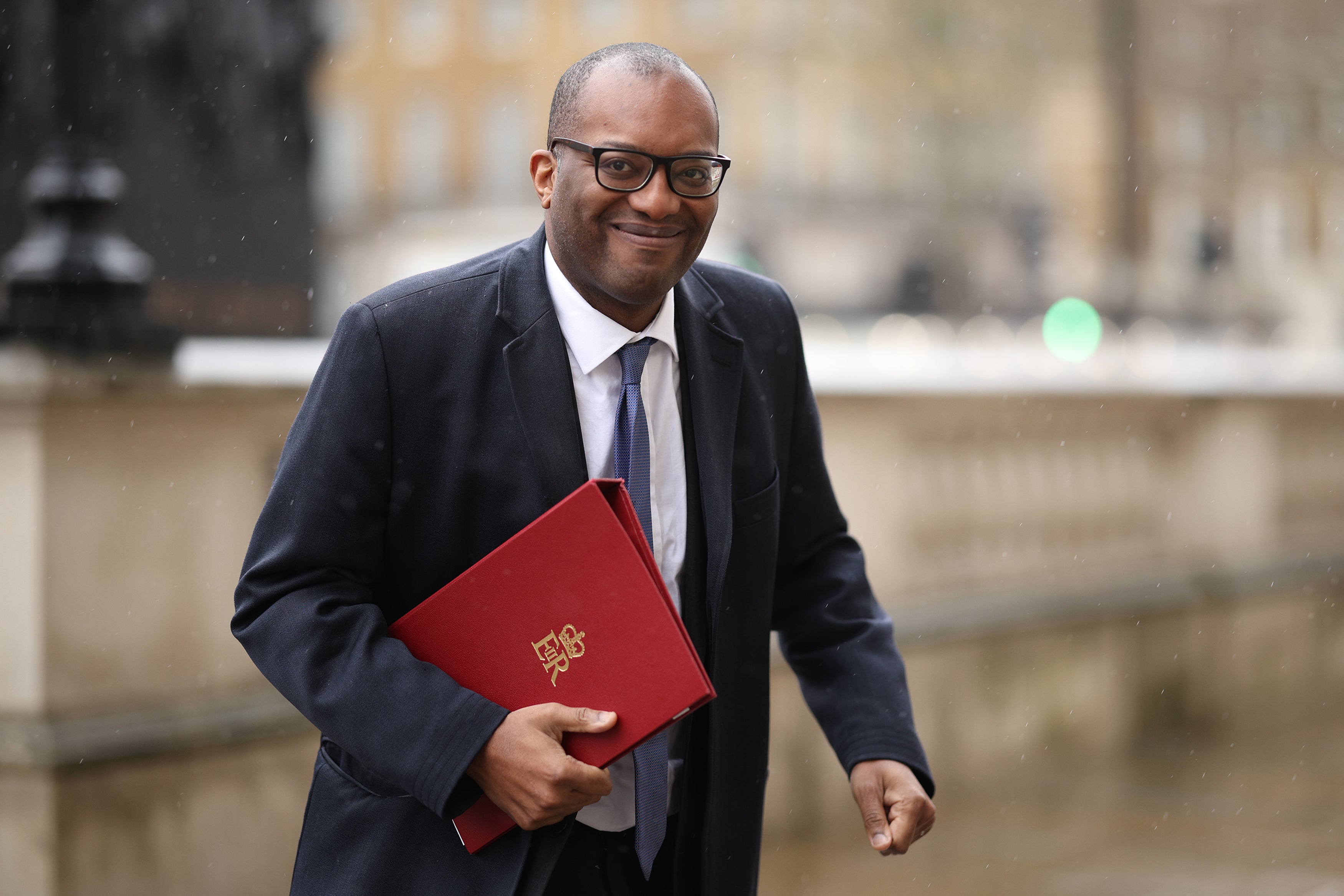War in Ukraine will inflame the cost of living crisis and test voters’ endurance
Ministers are getting worried about the scale of hardship voters will be prepared to swallow, on top of what was already expected to be a tough year for household budgets, writes Andrew Woodcock


This has been a week of stirring rhetoric in Westminster, much of it recalling Britain’s proud history of self-sacrifice and resilience in the Second World War.
Volodymyr Zelensky was universally applauded for invoking Churchill as he vowed to “fight in the forests, in the fields, on the shores, in the streets”. Kwasi Kwarteng appeared to be recalling the Blitz spirit as he said the UK public would be “willing to endure hardships” in solidarity with Ukraine.
But behind the scenes, ministers are getting worried about the scale of hardship voters will in fact be prepared to swallow, on top of what was already expected to be a tough year for household budgets.
The £700 average rise in energy bills due in April, but expected to be temporary, was already considered enough to require a £9bn package of support from Rishi Sunak. But now experts believe that the consequences of Russia’s invasion could add a further £1,000 – taking the average bill close to £3,000 a year, potentially for years to come.
Soaring fuel prices will not only hurt motorists at the pump but feed through into price rises for everything else which needs transporting to shops. And the abrupt disappearance of Ukraine’s vast wheat and sunflower oil production from world markets will mean food shortages and yet more price rises.
The Resolution Foundation, a low pay think tank, has warned of the biggest hit to living standards since the 1970s. And with a general election no more than 26 months away, nervous ministers are wondering precisely how much pain it will take to create a tsunami of public anger which could sweep them from power.
Already, officials at Mr Kwarteng’s business department are working on proposals to increase Sunak’s £200 energy loan – which he terms a “discount” – by 100 per cent or more, and to delay repayments in order to push some of the pain into the far future.
The Treasury is understood to be resisting, but expectation is growing that Boris Johnson will order the chancellor to provide some relief in his spring statement later this month. The Institute for Fiscal Studies reckons it’ll cost him £12bn just to maintain the impact of his previous package.
Money Saving Expert’s Martin Lewis warns that government claims about public willingness to endure hardship look like a “deliberate narrative shift” designed to move blame for plunging living standards away from them and onto Putin.
To keep up to speed with all the latest opinions and comment, sign up to our free weekly Voices Dispatches newsletter by clicking here
It’s fair to say that none of this was factored into Boris Johnson’s re-election plans when he fought the 2019 campaign. Covid has already dealt a mighty blow to his agenda of delivering Brexit, riding out the immediate hit to the economy and going into the 2024 poll on the back of big spending on infrastructure and tax cuts.
Now Ukraine makes that vision all the more unattainable. For the PM, a lot hangs on the question of whether the gravity of the international situation will weigh heavier than voters’ personal financial circumstances when they come to mark their X on the ballot paper.
No matter how much they currently approve of his tough line with Russia – and all the polls suggest they do – political history suggests that it is very difficult to get re-elected on the back of an economic slump.
Yours,
Andrew Woodcock
Political editor
Join our commenting forum
Join thought-provoking conversations, follow other Independent readers and see their replies
Comments
Bookmark popover
Removed from bookmarks